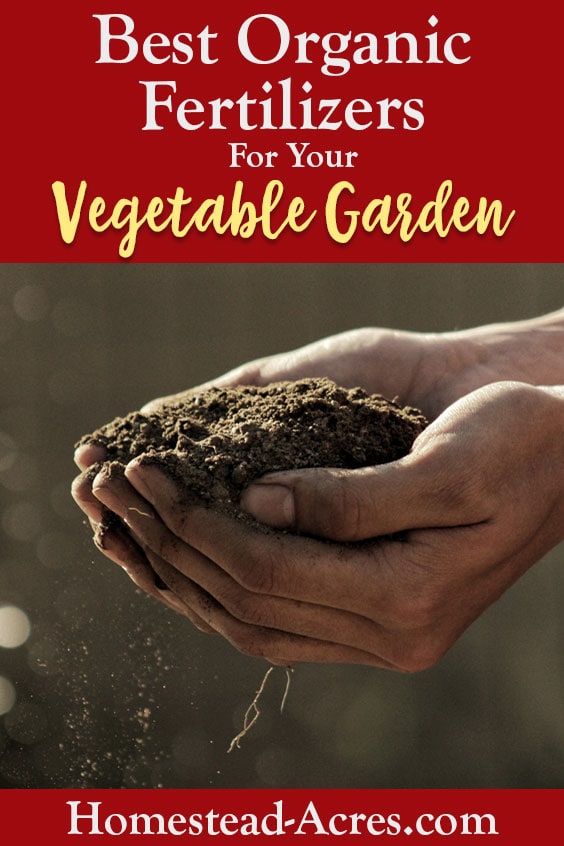Best Organic Fertilizers for Vegetable Gardens

Best Organic Fertilizers for Vegetable Gardens
Growing a vegetable garden is an incredibly rewarding experience. But to get the most out of your plants, you need to feed them right. That's where organic fertilizers come in. They're like the superfoods of the plant world, packed with nutrients to keep your garden thriving. So, let's dive into the world of best organic fertilizers for vegetable gardens.
Why Choose Organic Fertilizers?
Organic gardening isn't just a trend; it's a sustainable way of life. Organic fertilizers improve soil health by increasing organic matter, enhancing soil structure, and promoting microbial activity. Plus, they're slow-release, meaning they provide plant nutrition over time, reducing the risk of overfeeding.
Understanding the N-P-K Ratio
Before we dive into the best organic fertilizers, let's understand the N-P-K ratio. It represents the percentage of Nitrogen (N), Phosphorus (P), and Potassium (K) in fertilizers. These are the primary nutrients that plants need.
Nitrogen (N)
Nitrogen is like the protein shake of the plant world. It promotes leaf growth and green foliage. Too little, and your plants will look yellow and stunted.
Phosphorus (P)
Phosphorus is crucial for root development and flowering. It's like the multivitamin that boosts your plant's immune system.
Potassium (K)
Potassium is the energy drink of plants. It helps with overall plant health and fruiting. It also improves disease resistance.
Top Organic Fertilizers for Your Vegetable Garden
Compost: The Gardener's Gold
Compost is the king of organic fertilizers. It's rich in organic matter and improves soil structure and drainage. Plus, it's a great way to recycle kitchen and garden waste. You can make it at home or buy it from stores.
Animal Manures: The Power Pack
Animal manures like chicken, cow, or horse are excellent sources of nutrients. They're like the power bars of the plant world. Just make sure to compost them first to kill any pathogens.
Blood Meal: The Nitrogen Booster
Blood meal is high in nitrogen and gives your plants a quick growth spurt. It's like the espresso shot of fertilizers. Use it for leafy greens like spinach and lettuce.
Bone Meal: The Flower Booster
Bone meal is rich in phosphorus and calcium. It's great for root development and flowering, making it ideal for plants like tomatoes and peppers.
Seaweed Fertilizer: The Ocean's Gift
Seaweed fertilizer is packed with micronutrients. It promotes overall plant health and helps plants deal with stress. It's like the plant version of a spa day.
Fish Emulsion: The Liquid Gold
Fish emulsion is a fast-acting liquid fertilizer that's gentle on plants. It's perfect for seedlings and young plants. Plus, it's like a protein shake for your plants.
How to Choose the Right Organic Fertilizer
Choosing the right fertilizer depends on your soil's needs and the plants you're growing. For instance, if your soil is low in nitrogen, you might want to use blood meal. If you're growing root vegetables, bone meal could be your best bet.
How to Apply Organic Fertilizers
Applying organic fertilizers isn't as straightforward as synthetic ones. You need to work them into the soil, so the microbes can break them down. But remember, a little goes a long way.
The Role of Organic Fertilizers in Sustainable Gardening
Organic fertilizers play a crucial role in sustainable gardening. They help maintain soil fertility, reduce waste, and promote biodiversity. Plus, they're a great way to reduce your carbon footprint.
Where to Learn More About Organic Gardening
If you're new to organic gardening, there are plenty of resources to help you out. Websites like www.organicgardening.com offer a wealth of information on everything from composting to pest control.
Conclusion
Choosing the best organic fertilizers for vegetable gardens isn't just about feeding your plants. It's about nurturing your soil and creating a sustainable ecosystem. So, go ahead, give your garden the organic boost it deserves. Your plants (and the planet) will thank you.
FAQs
Q: Can I use too much organic fertilizer?
A: Yes, you can. While organic fertilizers are slow-release, overuse can still lead to nutrient burn and harm your plants. Always follow the package instructions.
Q: What's the best way to apply organic fertilizers?
A: Work them into the soil, so the microbes can break them down. You can also make a 'tea' by steeping the fertilizer in water and using it to water your plants.
Q: Can I use organic fertilizers for indoor plants?
A: Absolutely. Organic fertilizers are gentle and perfect for indoor plants. Just make sure to dilute liquid fertilizers to avoid overfeeding.
Q: What's the best organic fertilizer for tomatoes?
A: Tomatoes love phosphorus and calcium, so bone meal is an excellent choice. You can also use compost or a balanced organic fertilizer.
Q: How often should I apply organic fertilizers?
A: It depends on the fertilizer and your plants' needs. Some fertilizers like compost can be applied once a year, while others like fish emulsion can be applied every few weeks during the growing season. Always follow the package instructions.
0 Response to " Best Organic Fertilizers for Vegetable Gardens"
Post a Comment